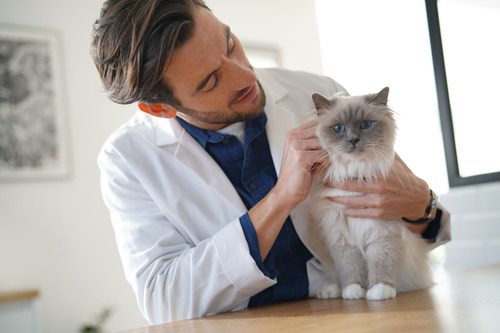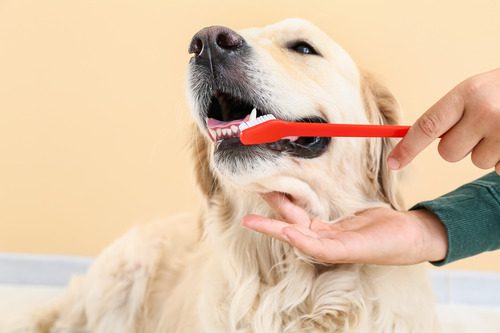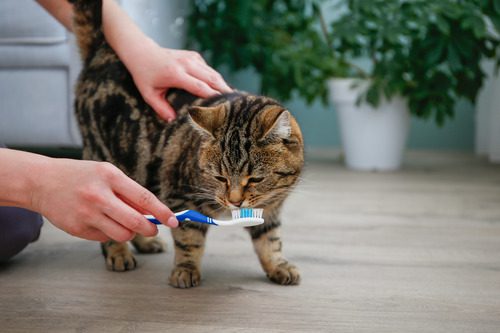Benefits of Spay and Neuter in Alameda, CA
Surprisingly, too many pet owners in Alameda do not know the benefits of spay and neuter surgeries. Not only does spaying and neutering provide a healthy life for your individual pet through medical and behavioral benefits, but it helps the overall problem of pet homelessness. One of the biggest challenges of increasing animal homelessness is pet owners not fixing their cat or dog. If you have any questions about when to spay or neuter your pet, call us at our East location at (510) 521-6608, or our West location at (510) 521-5775.

What is Spaying?
Ovariohysterectomy, the medical term for “spaying” is when a trained veterinarian surgically removes the ovaries, fallopian tubes, and uterus from a female dog or cat. This happens typically within the first year of life, even within 8 weeks for cats, before the reproductive organs have had a chance to fully develop and affect the animal.
Female cats and dogs will live a longer and healthier life if spayed. Without reproductive organs, a cat or dog has no way to reproduce. Pregnancy and giving birth have health risks of their own. Not only that, but they have no way to experience the “heat” or reproductive cycle. That means breeding behaviors and instincts are no longer a problem.
Many owners with an unfixed female cat or dog experience the horrible mating yowls during estrus. Often females in heat will urinate more often to mark their scent and let others know they are ready to reproduce. Some unfixed female cats will spray all over the house.
If females are left with their full reproductive organs, not only will they be very likely to have babies but they will exhibit unwanted behavior and unwanted health problems. This includes breast cancer, ovarian cancer, and uterine tract infections.
What is Neutering?
Neutering is the surgical removal of a male cat or dog’s testicles. This sterilizes the male and makes it impossible for them to impregnate a female. While this is the biggest benefit, it can also improve overall health and behavior in a male dog or cat.
Neutering a male reduces their testosterone levels, which in turn reduces any tendency toward aggression. They will be less likely to urinate and spray around the house or yard, a bad habit of unfixed cats and dogs. It will also reduce a pet’s want to roam in search of a mate, and encourage contentedness at home. Many unfixed dogs and cats will find any way to escape the house to find a mate. With all of this in mind, neutering helps to decrease fights between male pets who otherwise would scrap over territory and mating privileges.
For physical health benefits, unfixed males are at risk for reproductive health problems. Neutered males are less likely to develop an enlarged prostate as well as testicular cancer, as the source of “male” hormone has been removed.
As an added bonus, your dog will be much less likely to mount your leg, or the leg of a stranger or guest. Neutering saves a lot of awkward and embarrassing situations.
Why is it a Problem Not to Spay/Neuter Your Pet?
Simply put, there are already too many homeless animals. If no one spayed or neutered their pet, the homeless animal problem would increase exponentially. A single female cat can give birth to 50-200 kittens in her lifetime. That is about four kittens per litter, three times a year, for 10-15 years.
Dogs can have a similar amount of offspring, with a rate of about seven puppies in a litter also two-three times a year for about the same amount of time as cats. That ends up being around 100 puppies per unspayed female. If one unfixed cat has about 100 kittens in her life, and dogs have a similar offspring average, the world would quickly become overrun with cats and dogs. Not that that would be a bad thing, theoretically. The more kittens and puppies the merrier.
But it is already difficult for shelters to find homes for existing domestic animals. Many shelters are unable to support the heavy numbers of homeless cats and dogs. Some shelters still say they have no option but to euthanize pets who are not adopted. Over a million cats and dogs are still put down every year. Almost all of these pets are healthy.
Some organizations prefer to frame the issue not as overpopulation, but as a disproportion of animals homed to animals not homed. The term “overpopulation” has been used for a long time as an excuse to euthanize cats and dogs rather than provide the resources they need. There is plenty of room for all of the animals in shelters, it is more a matter of keeping the population rates steady, the shelter facilities well kept, and the ability to house the animals until they find their forever home.
So really, there is not so much a problem with there being too many cats and dogs, but not enough resources for them. This is changing all over the United States as we have begun to value our pets so highly, as we should. Even in the last year, adoption rates have shot up since the pandemic began. A blessing in disguise.
However, there is a real issue with the homeless animal population that could be more easily controlled with responsible pet care. Spay and neuter play a massive role in keeping puppies and kittens out of the shelter.
Not only would leaving pets unfixed increase the homeless problem, but it would cause problems for the individual animal. As mentioned previously, cats and dogs who are not spayed or neutered are at higher risk for health problems such as uterine infection, breast tumors, and prostate or testicular cancer. Plus, leaving a pet unfixed can cause general discomfort and unsafe or unwanted behavior.
For canine patients, due to the varied incidence and severity of disease processes, there is no single recommendation that would be appropriate for all dogs. Developing recommendations for an informed case-by-case assessment requires an evaluation of the risks and benefits of spay/neuter, including its potential effects on neoplasia, orthopedic disease, reproductive disease, behavior, longevity, and population management. However, many factors other than neuter status play an important role in these outcomes, including breed, sex, genetics, lifestyle, and body condition.
Overall, it is extremely important to have your pet spayed or neutered. If not, there are many consequences for you, your pet, and the world. Call Providence Veterinary Hospital’s East location at (510) 521-6608, or our West location at (510) 521-5775.
Source:
: https://www.avma.org/resources-tools/animal-health-and-welfare/elective-spaying-and-neutering-pets
Recent Posts
What Does Your Dog’s Tail Wag Really Mean?
What Does Your Dog’s Tail Wag Really Mean? Dogs use their tails for much more than just…
Feline Leukemia: Prevention and Detection
Feline Leukemia: Prevention and Detection Cat Feline Leukemia is a serious viral disease that affects felines worldwide….
A Team Effort: How Home Care and Professional Cleanings Keep Your Dog’s Teeth Healthy
A Team Effort: How Home Care and Professional Cleanings Keep Your Dog’s Teeth Healthy Dental health is…
The Perfect Pair: Home Care and Professional Cleanings for Your Cat’s Teeth
The Perfect Pair: Home Care and Professional Cleanings for Your Cat’s Teeth Caring for your cat’s teeth…
What is Bordetella and Why Should You Care?
What is Bordetella and Why Should You Care? Bordetella is a term many pet owners hear when…
Providence Veterinary Hospital & Clinic serve Alameda, CA as well as Oakland, San Leandro, and the surrounding areas with superb veterinary medicine and gentle, compassionate care. We’ve been a part of this community since 1947 when a veterinarian started seeing pets in his home after the end of World War II. He built an animal hospital right under his house, and that’s where we remain to this day (with modern remodeling in 2016, to outfit the hospital with the latest medical technology and equipment, of course!).





